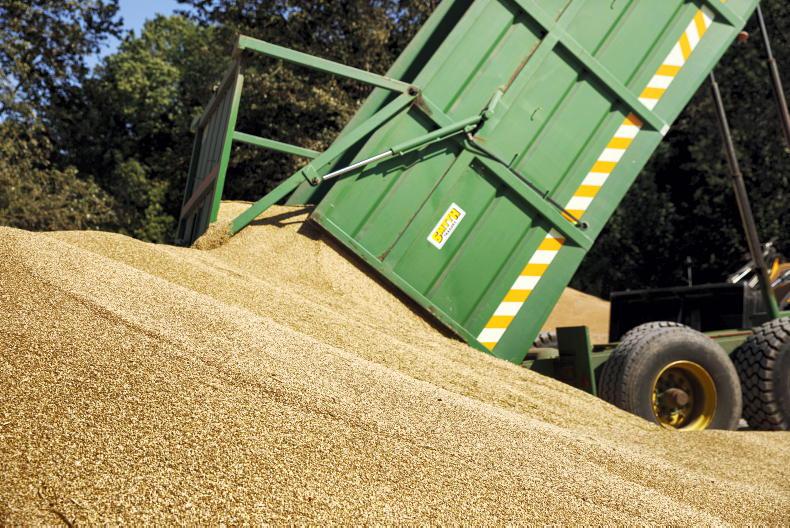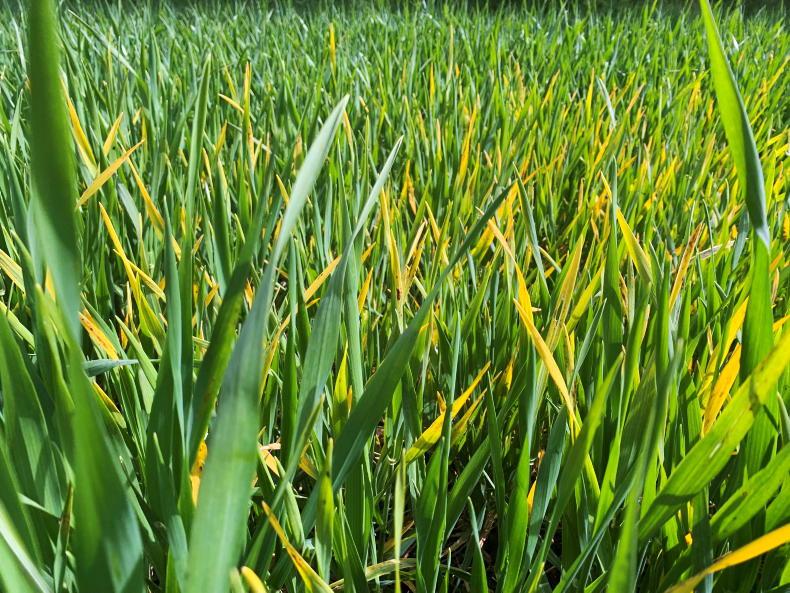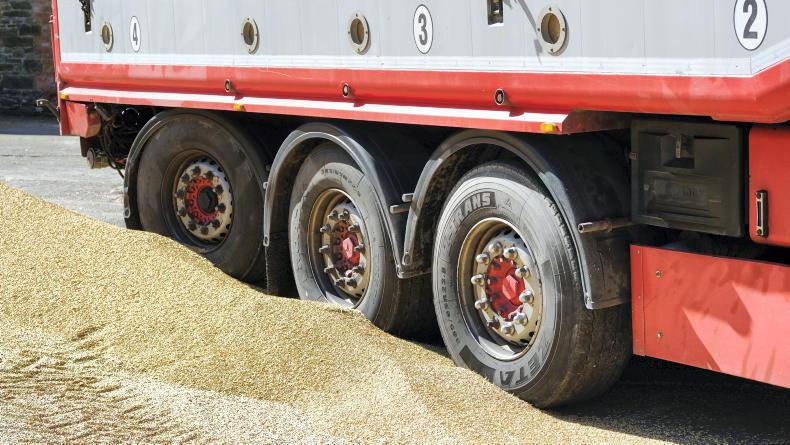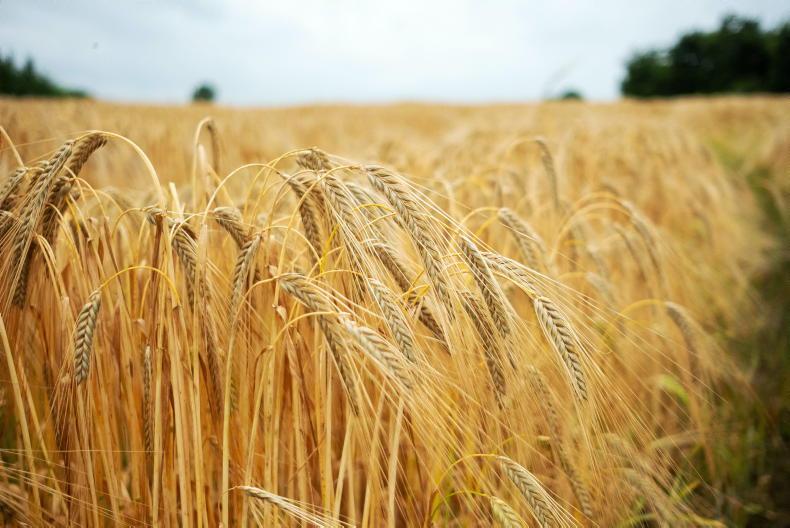Grain markets are up from last week, but have been moving up and down over that time.
Markets began to rally on Thursday last due in some ways to movements in the US and this has helped recover some of the price loss over the past few weeks. Winter kill in US crops raised concerns for crop yields.
On Tuesday 31 January, the December French milling wheat price finished at €273.50/t.
This was up €6/t on the week before and brings it €1/t above the price at the same time two weeks ago.
The Agriculture and Horticulture Development Board (AHDB) reported this week that it sees a positive outlook for maize prices, which is always a help to wheat and barley prices here.
The same report stated that “substantial” demand for Brazilian maize from China will likely support markets.
Prices
The Irish Farmers Journal spoke to David Eudall of the AHDB at this week’s arable conference held by Cafre, the UAS and the UFU in Greenmount, Co Antrim.
The market analyst said he expects wheat to hold at a minimum of £220/t (€249) and trading should be in the realm of £220/t to £250/t (€283) as people start to get a bit more nervous about weather conditions.
To put these prices into perspective, this would mean wheat coming into Belfast would be at about £260/t to £280/t (€294/t to €317/t) after freight and other costs.
David added that a weather event in the spring will help to underpin markets.
He said because the stocks aren’t underneath the market, a weather event would dictate how far prices could rise.
He was keen to say that prices have been drifting in recent months and they won’t get back to the highs of last year.
Overall, this week’s events have resulted in very little change to grain markets at home. Native barley in November (dry) is unchanged from last week at €260/t.
Rapeseed price for November has risen by almost €5/t since Friday.
It closed at €542.25/t on Friday 27 January and on Wednesday afternoon was at €547/t. Some of this rise is thought to be due to strong prices for soya.
Drought in Argentina continues to support these prices.
However, the Buenos Aires grain exchange reported that recent rain in Argentina brought relief to the central agricultural area in the north of the country.
This should prevent further reductions in soya bean yields. The soya bean harvest has started in Brazil and its estimated that production will be up by about 27.2 million tonnes on the year previous. You can hear more from David Eudall of the AHDB on this week’s Irish Farmers Journal Tillage Podcast out at 4pm every Thursday.










SHARING OPTIONS